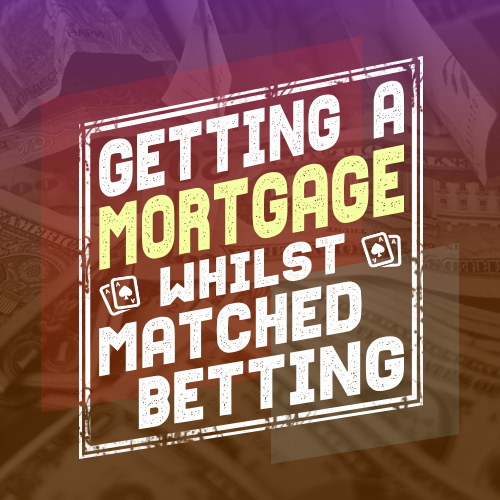Gambling Affect Mortgage
- Gambling Affect Mortgage Companies
- Can Gambling Affect Mortgage
- Gambling Affect Mortgage Payments
- Gambling Affect Mortgage Rates
Despite what you may have heard, mortgage advisors don’t spend their spare time sitting in a lair somewhere, stroking their beard while devising reasons why you can’t have a mortgage.
Generally speaking, gambling and mortgages do not mix well. Taking out a mortgage means that a bank or building society trusts that you’re able to pay the money back. But if they see that you’re an active gambler, then this may go against your application. The actual type of gambling can have a significant impact on mortgage approval, for example: the best winning streak ever on roulette is unlikely to be accepted, but a regular win ratio of online poker tournaments may well be, given that the game is based more on skill or knowledge than luck. Indication of gambling or overspending can be seen by the lender and may affect your mortgage application. Can professional gamblers get a mortgage? The nature of gambling is unpredictable and even those who derive their income from gambling will experience periods of fluctuation. Nov 09, 2020 There are multiple factors that can affect a mortgage application, some of which you may not have considered previously. One of the first things a lender will look at is your credit score. Again, this can be affected by various circumstances, but you may not have considered that a leisurely gambling habit could have its own consequences. There are multiple factors that can affect a mortgage application, some of which you may not have considered previously. One of the first things a lender will look at is your credit score. Again, this can be affected by various circumstances, but you may not have considered that a leisurely gambling habit could have its own consequences.

In fact there’s a lot of myths out there about what lenders are looking for. Here’s five things that won’t actually ruin your mortgage application.
1. Occasionally gambling or spending your money on stuff you don’t need
There’s a lot of information out there that suggests that any gambling is an absolute no-go, but spending the odd tenner on the races or on what will happen in the Christmas episode of Eastenders isn’t a big deal.
Gambling is an issue only if it’s frequent, if you place bets you can’t afford, or if your mortgage advisor thinks it might impact your mortgage repayments.
The same goes for spending money on ‘silly’ things. We all do it, so go out and have a good time! Just make sure to follow your budget and to do it all in moderation.
2. Applying for a mortgage on your own
Let’s get it out of the way: yes, it is possible to get a mortgage on your todd. However, there are certain considerations, the big one being that your mortgage amount is relative to your income. If you’re in a partnership or are married and want a mortgage, your income is combined.
The deposit is also a lot easier to save up if you’ve got a lovely other half to help out. That said, your mortgage application won’t be rejected because you’re applying on your own.
3. You don’t know what your credit rating is
If you’re a fan of spending but you’re not too good at keeping track of your repayments (sure the money comes out of your account at the end of the month – no bother!), a bad credit rating can impact your application.
Hop over to the Irish Credit Bureau and you can apply for a credit report online for only €6. If your credit rating is on the negative side, make sure to tell your mortgage advisor as soon as possible so you’ll have no financial skeletons waiting to jump out of your closet.
While not knowing won’t cause issues, a bad credit rating will have to be taken into account – but we reckon that’s fair enough!
4. Having a messy paper trail

When you go into your mortgage meeting, the ideal scenario is that you’ll have your documents organised and in tip-top shape. You’ll be able to show your mortgage advisor how much you’ve saved each month, how you spend your money, and how good you’ll be at meeting your mortgage repayments.
While that certainly helps things along, a messy paper trail isn’t the end of the world. Incase your paperwork has disappeared to the same place as all your matching socks, these are the documents you’ll need to bring to your mortgage meeting:
PAYE employees
• Photo ID
• Proof of address
• P60 (or 3 months consecutive payslips)
• Certificate of income
• Bank statements for the last 6 months
Self-employed
• Photo ID
• Proof of address
• 3 years audited/trading accounts
• Confirmation of your tax position
• 3 years Revenue Notice of Assessment
• 6 months business current account statements
5. Being in negative equity
Negative equity happens when the value of your house is less than the amount you owe on your mortgage; if you sold your house, you wouldn’t be able to fully clear your mortgage.
A lot of Next Time Buyers think that being in negative equity means they won’t be able to get another mortgage, but that’s not true.
With Negative Equity Home Movers, you can transfer the outstanding balance to a new loan on your next house. As with most second houses, you can decide whether to trade up or down (finances pending).
Gambling Affect Mortgage Companies
Thinking of applying for a mortgage?
Whether you’re a first time or next time buyer, EBS has options to suit you. If you want to buy a house or you’re considering trading up or down, try our mortgage calculators or book a 30 minute mortgage meeting now!
EBS d.a.c. is regulated by the Central Bank of Ireland.
The content of this blog is expressed in broad terms and is limited to general information purposes only. Readers should always seek professional advice to address issues arising in specific contexts and not seek to rely on the information in this blog which does not constitute any form of advice or recommendation by EBS d.a.c.
EBS d.a.c. neither accepts nor assumes any responsibility in relation to the contents of this blog and excludes all warranties, undertakings and representations (either express or implied) to the fullest extent permitted under applicable law.
Generally speaking, gambling and mortgages do not mix well. Taking out a mortgage means that a bank or building society trusts that you’re able to pay the money back. But if they see that you’re an active gambler, then this may go against your application.
However, there is a difference between those who gamble large amounts of money on a regular basis (including those who are professional gamblers), compared to those who might put a small bet on every now and then.

When will gambling affect a mortgage application?
If you’re a professional gambler wanting to use your winnings as evidence that you can afford to take out a mortgage, then you might come up against a few hurdles, as this is considered far more risky than someone who has a job and gambles occasionally on the side. That’s not to say that it isn’t impossible though. Those lenders who are willing to lend you the money might alleviate this risk by increasing the interest rate and only lending a small amount of money.

Whilst you may argue that professional gambling is no different to getting a mortgage when self-employed, gambling is still deemed as a riskier business than self-employment, especially if there’s no trace of regular savings but a build-up of debt instead.
Ultimately, you need to be aware that if you’re a professional gambler, this activity is seen as a risk and could result in your mortgage being declined.
When won’t gambling affect a mortgage application?
When lenders carry out their affordability checks, they look at your bank statements from the previous 3-6 months. Therefore, any gambling on your bank statements during this period will be seen by your potential lender. However, the lender is not going to judge you on what you chose to spend your money on. Their primary concern is that you aren’t getting into debt in order to fund the gambling, so if you’re betting using your own money, and you aren’t in debt, then this shouldn’t affect your mortgage application.
Can Gambling Affect Mortgage
Similarly, if you only put the odd bet on here and there, then you don’t need to worry about gambling affecting your mortgage application. Just be mindful that if your finances begin to suffer because of it, then this may affect things.
How to get mortgage approved
If you do gamble and you’re worried about getting a mortgage, you could try the following things to help improve your situation and get yourself mortgage ready:
Clear your debts – Clearing off any debt you have shows that you’re responsible when it comes to your finances.
Regular savings – Again, it’s all about responsible lending, so if you can show that you have a savings account that you pay into regularly, the lender will see you as a low-risk borrower.
Good credit history– Having a good credit history improves your chances of getting a mortgage, so you should work to improve your credit score.

Stop gambling – The most obvious, but this can only happen if you want to stop gambling.
Get the right mortgage advice
Speaking to a mortgage broker can help you get the right advice that you need in order to fulfil your dream of getting on the property ladder. They’ll be able to address any worries or concerns that you may have about your spending habits.
At Mortgage Advice Bureau, we deal with people from all walks of life and we do not judge anyone’s personal circumstances – we are simply here to help.
Get help for your gambling addiction
If you’ve been refused a mortgage due to gambling, then now might be the right time to turn things around and seek advice. Visit the GambleAware website for help with a gambling addiction https://about.gambleaware.org/.
For further information call: Sunjay Chauhan 07525 129333
Email: [email protected]
Gambling Affect Mortgage Payments
or visit: Sunjay Chauhan Website
Your home may be repossessed if you do not keep up repayments on your mortgage.
Gambling Affect Mortgage Rates
There will be a fee for mortgage advice. The actual amount you pay will depend upon your circumstances.
The fee is up to 1.5% but a typical fee is 0.3% of the amount borrowed.
Having been in the mortgage industry for over 10 years I have a wealth of knowledge in all things related to mortgages. I pride myself on providing the highest level of service to all my clients which has led to me winning a number of awards.